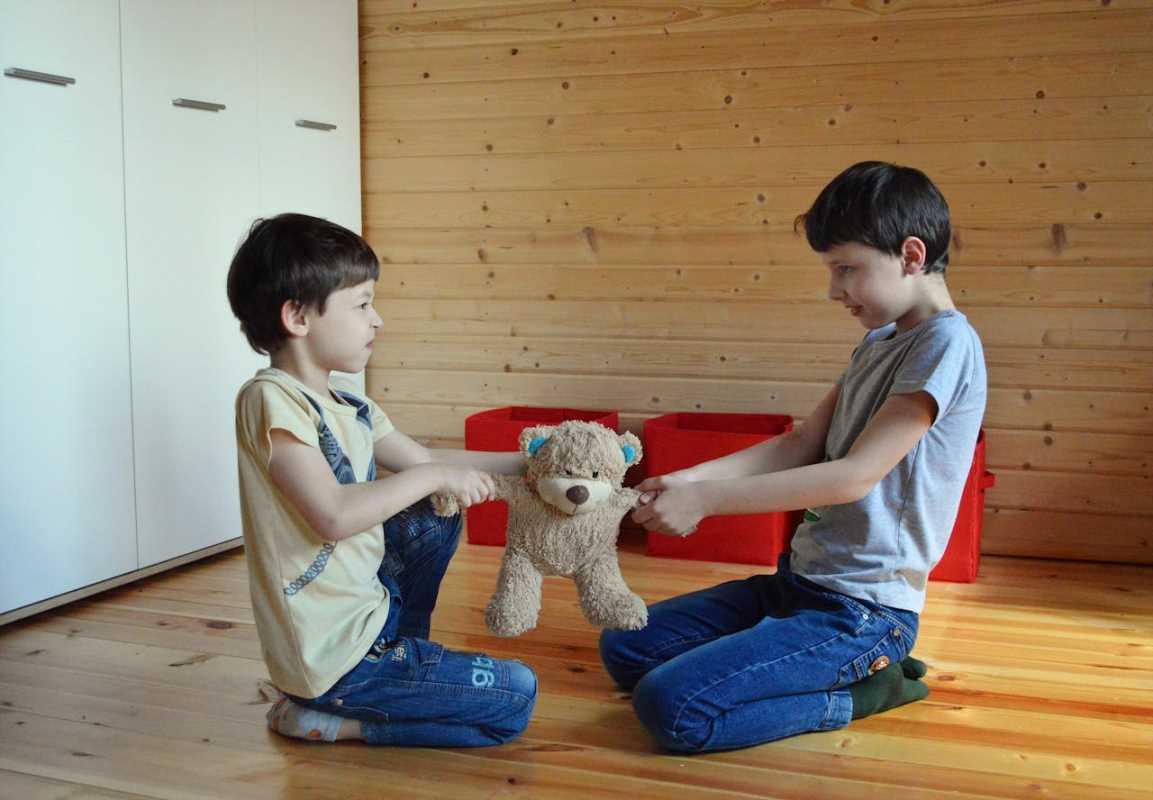Quiet resentments are the unspoken frustrations and disappointments that build over time within relationships. Left unchecked, they can harm trust and understanding, turning minor issues into significant sources of conflict. Recognizing and addressing these silent grievances is crucial for maintaining healthy and open communication with those we value most.
This article explores actionable strategies to identify and resolve quiet resentments before they escalate into full-blown arguments. You’ll learn how to foster honest communication, practice empathy, and create a safe space for addressing frustrations. By taking proactive steps, you can strengthen your personal relationships, prevent emotional bottlenecks, and cultivate a more harmonious connection with those around you.
Recognize the Signs of Quiet Resentment
Unspoken resentment doesn’t announce itself loudly, but it leaves subtle clues in everyday interactions. Tensions may arise during simple conversations, or one person might grow distant, seemingly withdrawing emotionally. Over time, these feelings create cracks in relationships that can be hard to repair if ignored.
Resentment often stems from unmet expectations, unresolved disagreements, or feelings of being undervalued. It festers in silence when frustrations go unexpressed, making it vital to notice early warning signs.
- Pay attention to changes in behavior or communication. For example, take note if your partner becomes less engaged in discussions or a family member starts avoiding certain topics.
- Reflect on your own emotions as well.
- Ask yourself, “Have I been holding onto feelings that I haven’t expressed?” Identifying the issue is the first step toward resolution.
Create a Safe Space for Open Communication
Open communication is the foundation of defusing resentments before they grow. People often keep frustrations to themselves out of fear of judgment or rejection. Creating an environment where thoughts and feelings can be shared without conflict encourages honest dialogue.
- Fostering safe communication doesn’t mean avoiding difficult conversations.
- It involves ensuring that discussions about grievances happen in a respectful, non-confrontational way.
Start conversations with a calm and understanding tone. You could say, “I feel like we’ve had some unspoken tension lately, and I’d really like to hear your thoughts.” Avoid placing blame, instead focusing on your feelings and observations. Reassure the other person that your goal is to strengthen the relationship rather than criticize.
Address Resentments Early
Like any problem, quiet resentments are easier to manage when addressed early. Allowing frustrations to linger can intensify negative emotions, making them harder to resolve later. Catching issues quickly prevents them from snowballing into larger, more challenging conflicts.
Resolving minor concerns swiftly also helps build trust and shows that both parties are committed to maintaining a healthy relationship.
Set aside a regular time to check in with each other proactively. This could be weekly family meetings, monthly heart-to-hearts with a partner, or even casual moments during dinner. Ask open-ended questions like, “Is there anything that’s been on your mind lately?” Giving space for small concerns allows you to resolve them before they grow.
Use “I” Statements to Express Feelings
Expressing frustrations can be tricky without triggering defensiveness. Words that come across as accusatory often lead to arguments, pushing both people further apart. Using “I” statements helps shift the focus toward your perspective, preventing blame while encouraging empathy.
This technique fosters a more constructive and collaborative approach to solving issues together.
- Frame your feelings in a way that reflects your experience rather than pointing fingers.
- For example, rather than saying, “You never appreciate what I do,” try, “I feel underappreciated sometimes, and I’d love to hear your thoughts on how we can support each other better.”
This approach makes it easier for the other person to understand your emotions without feeling attacked.
Practice Active Listening
Effective communication isn’t just about what you say—it’s also about how you listen. When someone shares their frustrations, truly hearing them shows that you value their feelings and want to understand their perspective. Active listening creates a strong foundation for mutual trust and respect.
Interrupting, dismissing concerns, or focusing solely on your rebuttal can escalate emotional tensions rather than resolve them.
When someone speaks, give them your undivided attention. Maintain eye contact, nod to show you’re engaged, and summarize what they’ve said to confirm you understand. For instance, respond with, “It sounds like you felt ignored when I missed that event. Is that right?” Validation like this ensures that their concerns are heard and acknowledged.
Acknowledge and Validate Feelings
One of the key factors in resolving resentments is acknowledging the emotions underlying them. Minimizing or invalidating someone’s feelings—no matter how small the issue seems to you—can deepen resentments. Recognizing their emotions doesn’t necessarily mean agreeing with them, but it demonstrates that you respect their experience.
Validation is a simple yet powerful way to diffuse frustrations and show empathy.
- Respond to expressed concerns with phrases like, “I can see why that upset you,” or, “It makes sense that you’d feel frustrated about this.”
- Avoid dismissive statements like, “It’s not a big deal.”
- Everyone processes emotions differently, and acknowledging their validity brings you one step closer to resolution.
Collaborate on Solutions
Quiet resentment often stems from a lack of resolution. Identifying problems is important, but finding solutions together is what moves relationships forward. Collaborative problem-solving ensures both individuals feel heard and invested in the outcome.
By working as a team to resolve conflicts, you reinforce your commitment to maintaining a healthy relationship.
Ask questions that foster collaboration, such as, “What can we do to make things better going forward?” Brainstorm solutions together, keeping an open mind about each other’s suggestions. For example, if the frustration involves feeling overburdened at home, propose a schedule to share tasks and lighten the load equally.
Set Healthy Boundaries
Quiet resentment sometimes occurs when boundaries are unclear or frequently crossed. Without established limits, it becomes easy to feel taken advantage of, leading to frustration. Clear boundaries bring structure, ensuring mutual respect and reducing misunderstandings that lead to conflict.
- Boundaries aren’t about control; they’re about safeguarding emotional well-being for everyone involved.
- Define boundaries that address the issues causing resentment.
For instance, if constant interruptions during downtime are a trigger, say something like, “I need 30 minutes of quiet time after work before we discuss plans for the evening.” Communicate these boundaries with kindness, and be willing to respect the other person’s limits as well.
Finding Reasons to Reconnect
Unaddressed resentments can erode the foundation of even the strongest relationships, making it harder to build trust and connection over time. Quiet frustrations may manifest as passive-aggressiveness, avoidance, or sudden outbursts, all of which harm relationship dynamics.
Proactively addressing resentments with empathy and understanding fosters healthier, more open communication. By creating a space where feelings are acknowledged rather than buried, you strengthen your relationships and position yourself for long-term success in navigating disagreements.
Putting It Into Practice
- Stay Calm Under Pressure: Take deep breaths during heated moments and commit to revisiting the discussion when emotions settle.
- Avoid Escalation: Focus on solving the issue rather than rehashing past grievances.
- Practice Self-Awareness: Reflect on your own feelings and actions regularly to catch early signs of resentment.
- Celebrate Progress: Acknowledge small milestones in communication improvement as a reminder of your shared efforts.
Addressing quiet resentments requires effort, patience, and mutual commitment, but the rewards are well worth it.







